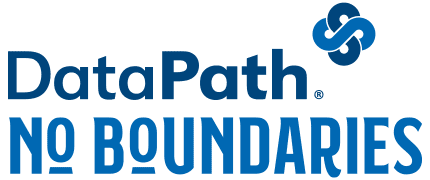
Most healthcare consumers know about Health Savings Accounts (HSAs) and Flexible Spending Accounts (FSAs). These popular healthcare benefit accounts allow individuals and families to cover out-of-pocket healthcare costs by setting aside money before taxes are taken out. There are rules about account eligibility, contribution limits, and more. Plus, the funds must be spent on IRS-approved healthcare products. If they spend funds on ineligible items and services, account holders could face taxes or penalties. These accounts play an important role in helping consumers manage their healthcare expenses. In 2019, a new healthcare benefit account was added to the mix – the Individual Coverage Health Reimbursement Arrangement, or ICHRA.
Here are 5 questions employees have about ICHRAs.
5 Questions Employees Have About ICHRAs
1. What is an HRA?
HRAs are employer-funded benefit plans that participants can use to pay for approved healthcare expenses. An Individual Coverage HRA is one of several types of Health Reimbursement Arrangement plans. The others are:
- Group HRA
- Qualified Small Employer HRA (QSEHRA)
- Excepted Benefits HRA (EBHRA)
- Retiree HRA
2. What is an ICHRA?
Following the passage of the Affordable Care Act (ACA) in 2011, HRAs were not allowed to cover individual healthcare policies. In 2017, small employers (those with fewer than 50 full-time employees) could offer a QSEHRA to help their employees cover individual policies. Then in 2019, employers were given the option of offering an HRA that can cover non-group policies, called Individual Coverage Health Reimbursement Arrangements (ICHRAs).
There are two important differences between an ICHRA and regular HRAs. ICHRA funds can be used to pay for individual healthcare insurance premiums (non-group policy) whereas standard HRAs cannot. Also, regular HRAs must be integrated with a group health plan while ICHRAs work with individual insurance plans – hence the name Individual Coverage HRA.
Businesses of all sizes can offer the benefit as long as employees do not have the ability to choose between a group policy or the ICHRA. These programs may also offer more flexibility in terms of how much an employer may reimburse an employee. And even large employers can use ICHRAs to satisfy ACA insurance mandates, provided the contribution is sufficient to make individual coverage affordable for the employees who choose this option.
3. How does an ICHRA work?
With an ICHRA, your employer funds the account. Contributions can be made weekly, monthly, quarterly, semi-annually, or some other time frame arrangement, depending on the plan design. The employer determines how much to contribute, and there are no minimum or maximum limits. ICHRA participants can then use these funds to pay for premiums, along with IRS-approved healthcare products and services, if the employer has designed the plan to allow for this. Finally, as of 2021, the employees’ self-only coverage, cannot exceed 9.83% of their household income or the ICHRA does not meet the requirements. In 2022, this percentage will drop to 9.61.
You pay for the expenses out-of-pocket first and then submit a claim. The claim paperwork should include receipts or other documentation to verify the purchase. Once the expense is approved, you will be reimbursed from your Individual Coverage HRA account. ICHRA reimbursements do not count toward an employee’s taxable income.
4. Who is eligible for an Individual Coverage HRA?
Employees must have coverage through an individual health insurance policy to participate in an ICHRA. This can include on- or off-exchange coverage, Medicare Parts A and B, or Medicare Part C. Participation in a group health insurance plan automatically disqualifies anyone from eligibility for an ICHRA.
Employees can be the primary policyholder of the individual insurance plan, or they can have coverage under an individual policy held by another family member. Family members also qualify under the employee’s ICHRA if they meet two conditions. First, they must meet the same criteria as the employee. Second, the employer must extend eligibility to spouses and dependents as well.
5. What ICHRA healthcare expenses are IRS-approved?
Another advantage with any type of HRA is the broad scope of healthcare products and services that qualify as tax-free expenses. However, it is important to know that an employer can decide which expenses are qualified under its plan.
Eligible expenses can include:
- Family doctor visits, hospital services, vision and dental, chiropractic and other types of services.
- Medicare A (if you aren’t covered by Social Security), B, and D premiums
- Long-term care payments
- Nursing services
- Alcoholism and drug addiction treatment
- A wide array of healthcare products such as crutches, eyeglasses, hearing aids, and much more
Refer to IRS Publication 502 for a full list of eligible expenses. If you have questions about expenses, be sure to contact your benefits administrator.
ICHRA Rules You Should Know
As with all tax-advantaged health plans, ICHRAs have strict rules:
- Only your employer can contribute to your ICHRA
- ICHRA funds must be used on IRS-approved products and services. The IRS considers funds spent for non-approved purchases to be taxable income that must be accounted for on your tax returns.
- Employers can contribute different amounts to different employee groups, such as full-time, part-time, seasonal, salaried, and hourly employees.
- Companies can offer group insurance to some classes of employees and ICHRAs to other classes of employees that do not participate in the group plan.
- Employers can vary contributions within the same class of employees based on age or family size.
- Unlike HSAs and FSAs, ICHRA can be used to pay for healthcare plan premiums.
- Businesses that offer ICHRA can’t offer a Qualified Small Employer HRA (QSEHRA) or Excepted Benefits HRA (EBHRA).
- If you lose your individual health coverage, you are no longer eligible for an ICHRA.
Another important ICHRA rule has to do with premium tax credit restrictions. If you have an Individual Coverage HRAs, you are not eligible for these valuable tax credits. However, you can decline to participate in your employer’s ICHRA if your monthly allowance amount is small enough that it wouldn’t enable you to afford an individual healthcare policy.
What is an ICHRA: Summary Plan Description
One final consideration is that ICHRA funds don’t belong to you. However, they are yours to use when needed. At the end of the year, any unused funds belong to your employer. However, your employer’s plan may allow carry over to the new year. Keeping track of all healthcare expenses (along with the documentation) and filing claims in a timely manner will assist you in using your ICHRA to its full potential.
Your Summary Plan Description (SPD) should outline in detail how your company’s plan works.
For 40 years, DataPath has been a pivotal force in the employee benefits, financial services, and insurance industries. The company’s flagship DataPath Summit platform offers an integrated solution for managing CDH, HSA, Well-Being, COBRA, and Billing. Through its partnership with Accelergent Growth Solutions, DataPath also offers expert BPO services, automation, outsourced customer service, and award-winning marketing services.

